Are Energy drinks good for Health? It’s been a hot topic over the past couple of years within the health industry. The consumption of energy drinks among young people is increasing significantly. Annabel Gipps, a Specialist Paediatric Eating Disorder Dietitian, examines the potential reasons for this trend and its implications for adolescent health.
Energy drinks frequently feature in news reports, often with negative connotations. Headlines such as “The life-threatening impacts of energy drinks” and “Teen dies after consuming just one energy drink” dominate online searches. Despite this negative publicity, these beverages are gaining popularity among young people. This raises questions: are these drinks truly harmful, and if so, why are they so easily accessible to young consumers?
Are energy drinks good for health – What are energy drinks?
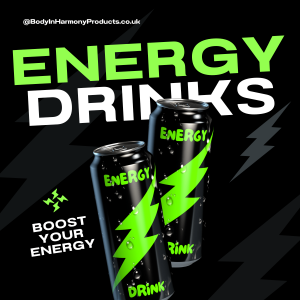
Energy drinks derive their primary energy content from glucose, but they often include additional ingredients designed to enhance energy, such as caffeine, taurine, and ginseng. Typically, they contain at least 150mg of caffeine per litre. “Zero” or “Diet” versions are also available, using sweeteners to reduce calorie content while maintaining high levels of caffeine and stimulants. In 2014, Red Bull held 25% of the energy drink market, followed by own-brand alternatives at 12%, Monster at 10%, and Relentless at 5%.
Are Energy drinks good for Health – Is Caffeine Harmful?
Are Energy drinks good for Health. The media often highlights cases of individuals experiencing adverse health effects, such as heart issues, after consuming energy drinks. Studies suggest caffeine can negatively impact heart health. For instance, German researchers in 2014 reported that energy drinks affected heart function during MRI scans. Manufacturers countered these claims, arguing the observed changes were the intended performance enhancements.
| Drink | mg caffeine per serving (serving size (mL)) | mg caffeine/100 mL |
|---|---|---|
| coffee powder in 200 mL boiled water | 5.7 (200) | 2.9 |
| tea bag in 200 mL boiled water (brewed 5 minutes) | 53.8 (200) | 26.9 |
| Relentless | 162.6 (500) | 32.5 |
| No Fear | 203.3 (473) | 43.0 |
| Red Bull | 75.0 (250) | 30.0 |
| 5 hour energy shot | 115.4 (58) | 199.0 |
| Rock Star | 153.8 (500) | 30.8 |
| Nae Danger | 76.0 (250) | 30.4 |
| Coca-cola | 31.4 (330) | 9.5 |
| Starbucks latte | 161.0 (473) | 34.0 |
Data table source: BBC.co.uk
To investigate caffeine’s effects, researchers from the University of Glasgow conducted an MRI scan. Volunteer Evonne abstained from caffeine for several days before consuming a large energy drink while under observation. Her heart rate increased from 62-63 beats per minute to the mid-70s shortly after consumption, and the force of her heartbeats also intensified.
Although Evonne’s response to caffeine was clear, such effects are not necessarily harmful. However, individuals with heightened sensitivity to caffeine may experience adverse outcomes. For those experiencing heart palpitations, it is advisable to limit caffeine intake. Children should avoid consuming large amounts of caffeine altogether.
Consumption Trends
While the overall consumption of soft drinks has declined in recent years, energy drink sales have surged, increasing by 155% since 2006. By 2014, 600 million litres of energy drinks were sold, with consumption among those aged 10-14 expected to rise by 11% between 2014 and 2019. In the UK, factors associated with higher energy drink consumption include being male, older adolescence, having special educational needs, and qualifying for free school meals.
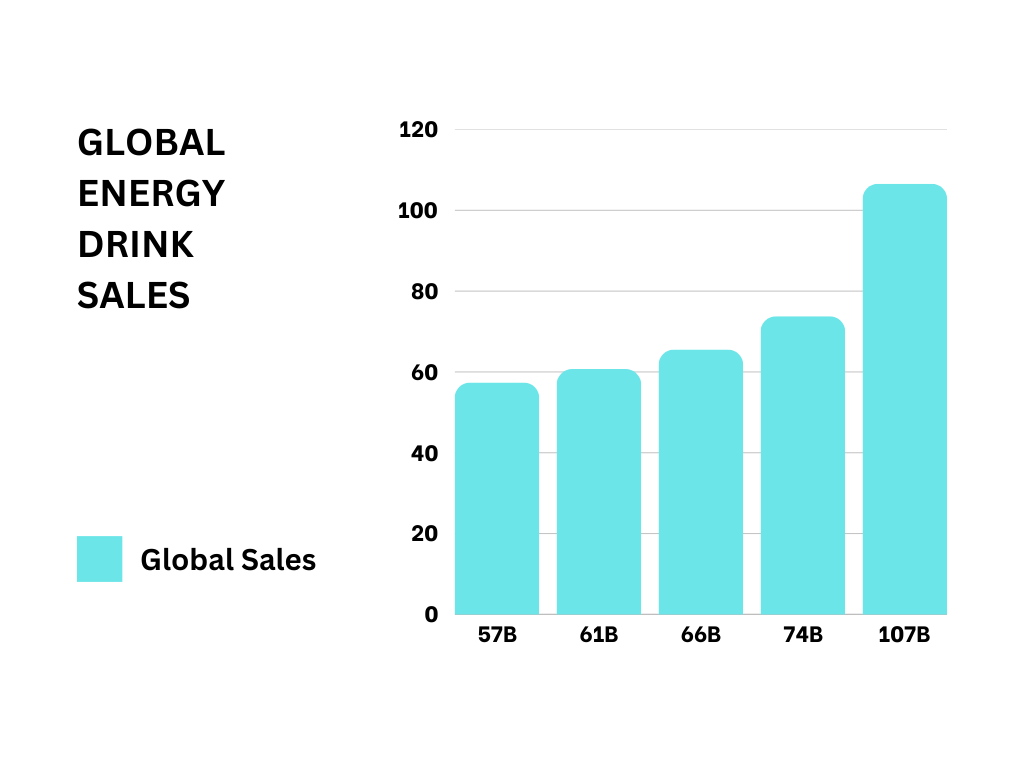
A systematic review found that boys consume higher quantities of energy drinks compared to girls. Girls who skip breakfast are more likely to turn to energy drinks later in the day. Children who are either underweight or higher-weight are also more likely to consume these beverages.
Physical Effects of High Energy Drink Consumption
Excessive energy drink consumption primarily affects the body due to caffeine content. Increased caffeine intake in children and adolescents can lead to elevated blood pressure, sleep disturbances, headaches, and stomach issues. Hyperactivity-related injuries have also been reported.
Adolescence is a critical period for bone development, and caffeine can interfere with calcium absorption in the small intestine, potentially reducing bone density. This effect may be exacerbated if energy drinks replace calcium-rich beverages such as milk.
Some studies have observed changes in ECG readings in adults after energy drink consumption. Although caffeine generally does not impact cardiac output, research from the American Heart Association found that energy drinks can prolong the QTc interval, a potential indicator of heightened risk for fatal arrhythmias, especially in individuals with underlying heart conditions.
Are Energy Drinks Bad for your Mental Health?
Energy drinks can also affect mental health, contributing to behaviours such as sensation-seeking, self-destructive tendencies, insomnia, and poor dietary habits. The high caffeine content may influence the developing brain’s reward and addiction centres, potentially shaping future food and drink preferences.
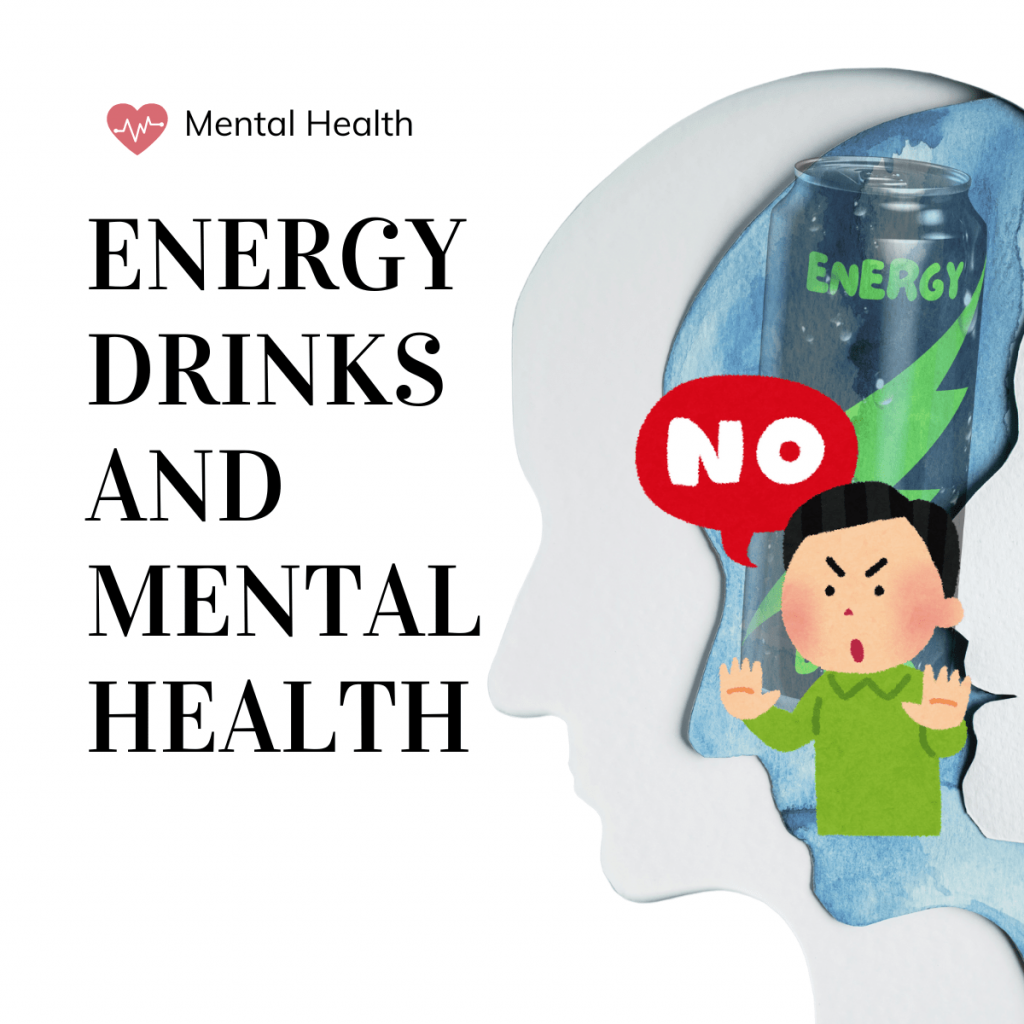
Energy drinks are often consumed alongside alcohol, with 53% of adolescents reporting mixing them with alcoholic beverages. This practice is linked to binge drinking, drug use, and drink-driving incidents.
Energy drinks may also contribute to the obesity crisis due to their high sugar content, which is associated with increased BMI, diabetes, and dental issues. Conversely, in young people with eating disorders, low-sugar versions may suppress appetite and promote loose stools, posing additional risks due to pre-existing vulnerabilities such as low body weight and heightened risk of cardiac arrhythmias.
Why Do Young People Consume Energy Drinks?
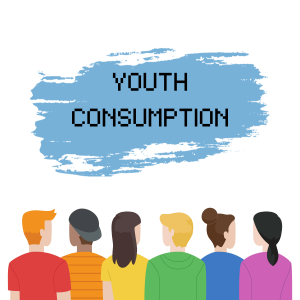
The motivations for consuming energy drinks are varied. Advertising and brand loyalty play significant roles, with young people frequently exposed to marketing through television, online platforms, sports sponsorships, and video games. Taste and the perceived need for an energy boost are also factors. Parental consumption patterns may further influence adolescents.
In the UK, there are currently no legal restrictions on the sale of energy drinks to young people. The British Soft Drinks Association advises against their consumption by young individuals, but this is not legally enforced. Countries like Sweden and Lithuania have implemented bans on sales to minors. A lot of others have introduced taxes on high-caffeine products, which have reduced consumption and funded public health initiatives.
Recommendations for Health Professionals
Healthcare professionals have a responsibility to educate the public, patients, and our youth about the potential risks of energy drinks. Particularly when mixed with alcohol. It has been suggested that energy drink use should be included in standard health screenings for at-risk youth. It must also include people with heart conditions or mental health issues.
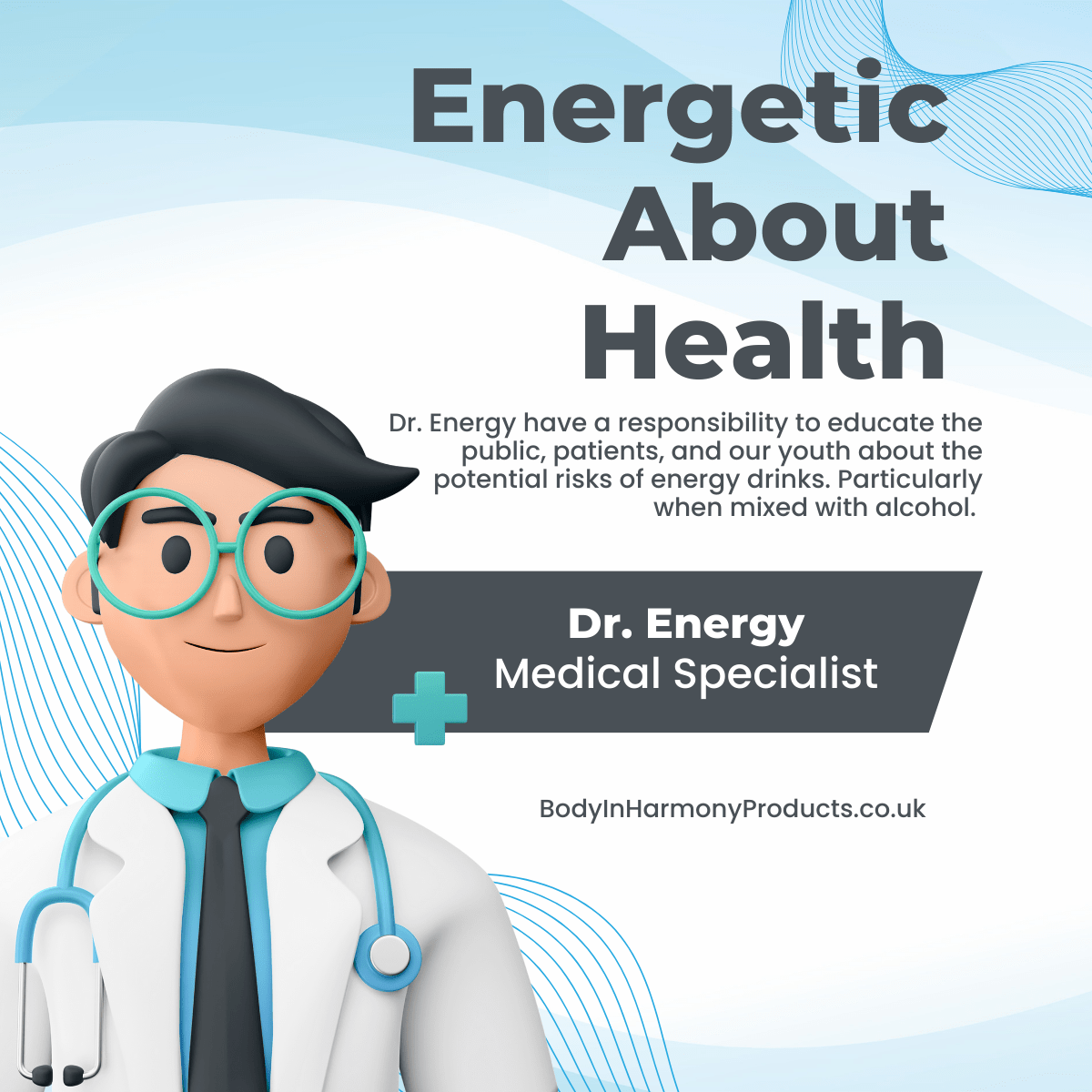
Dietitians, with their expertise in nutritional education, should emphasise that energy drinks are associated with more risks than benefits. Given the wide variety of products on the market, it is difficult to recommend any as safe alternatives. Young people should be encouraged to choose healthier options such as water, milk, or fruit juice.
Conclusion
The evidence clearly indicates that energy drinks have significant negative effects on young people’s physical and mental health. It’s associated with risky behaviours such as alcohol use. Despite limited legislation. it is crucial for healthcare professionals to provide evidence-based education. To help parents and young people make informed decisions about energy drink consumption.
Energy drinks are often marketed as quick solutions for fatigue, yet their ingredients and effects are worth considering in a wider lifestyle context. If you’re looking to take a more balanced view of how everyday choices influence health over time, our holistic wellbeing content explores simple, sustainable ways to support energy, focus, and overall balance without relying on short-term fixes.